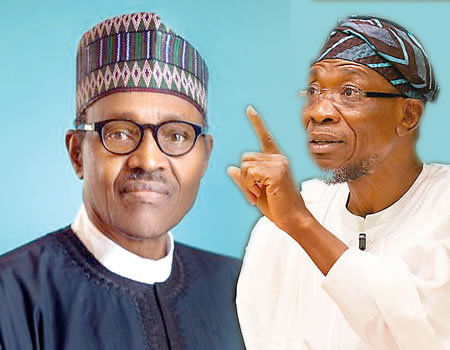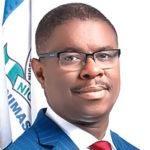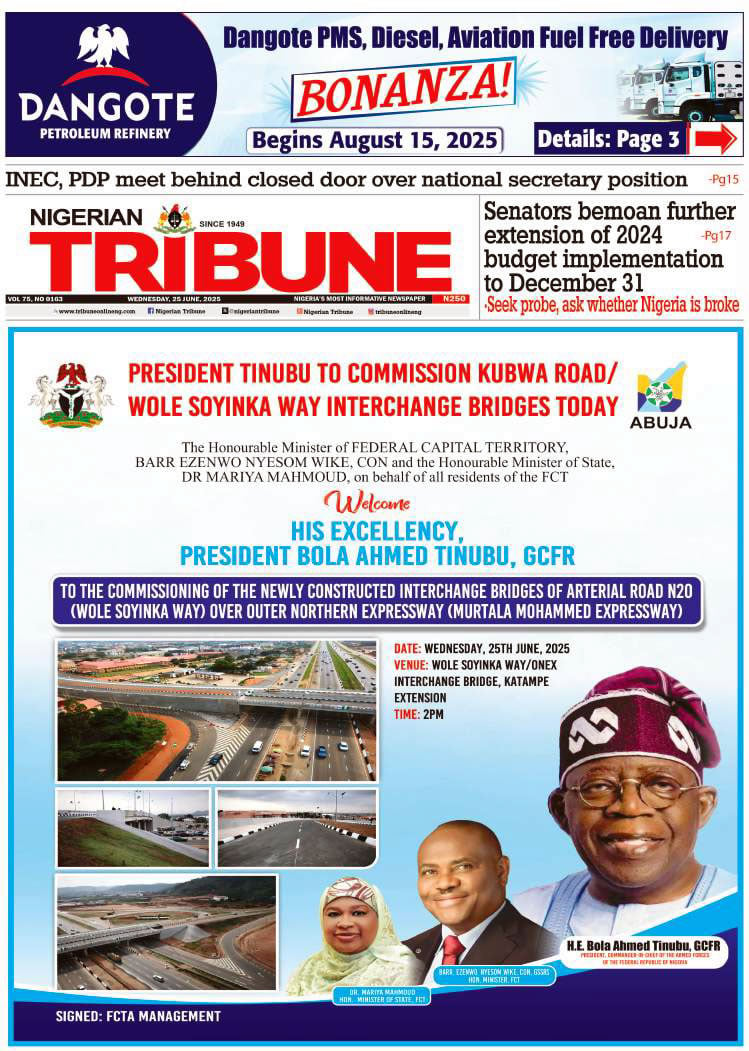President Muhammadu Buhari has launched a new visa policy for the country intended to boost the economy and create jobs. But LEON USIGBE writes that questions arise as to whether the policy is not a threat to the fragile national security.
Nigeria now has 79 different classes of visas for foreigners wishing to come into the country for any sort of business.
President Muhammadu Buhari launched the new Nigerian Visa Policy (NVP) 2020, last Tuesday, at the presidential villa, Abuja. The new structure of the Nigerian visas sees the introduction of three broad categories, including the Short Visit Visas, Temporary Residence Visas and the Permanent Residence Visas. Under the Short Visit Visas, there are 28 classes. Temporary Residence Visas has 36 classes, while there are 15 classes under the Permanent Residence Visas.
The Short Visit Visa class covers individuals such as non-accredited diplomats, people on transit travellers without visas, single and multiple entries visas for business, tourism, visiting, journalism, clerics, medical, sports, among others. Covered under Temporary Residence Visas are temporary work permit, accredited diplomats, spouse/dependents of accredited diplomats, employment (expatriate), employment (NGOs), employment (clerics), students, academic exchange programme, among others. The Permanent Residence Visas category makes allowance for spouse of Nigerian citizens, Nigerians by birth who renounced Nigerian citizenship visas, investors visas, among others.
The government’s rationale for reforming the visa policy is to strengthen Nigeria’s position as a key economy in Africa by attracting more Foreign Direct Investment (FDI) which, it believes, will, in turn, provide jobs for the people and lift Nigeria’s teeming population out of poverty in line with Buhari’s vision to take 100 million Nigerians out of poverty in the next 10 years. It comes at the heel of Nigeria’s signing of the African Continental Free Trade Agreement (AfCTA), a treaty seeking to establish a continent-wide market-place with increased trade and freer movement among its major economic powers. Cynics are wondering whether the seemingly liberalised visa policy would not cause more problems for a country already struggling with porous borders and insecurity. But the government argues that the NVP 2020 is also designed to support the attainment of the Economic Recovery and Growth Plan (ERPG) (2017-2020) and is a pathway to achieving the Security, Economy and Transparency (SET) Agenda of the present administration.
At the launch of the policy, President Buhari affirmed that it is designed to attract innovation, specialised skills and knowledge from abroad to complement local capacity. He believes that the implementation will support the attainment of a globally competitive economy for the country by building on the efforts of the Presidential Enabling Business Environment Council.
According to him, the policy will improve the business environment and boost tourism without compromising national security. While arguing that the introduction of the ERPG (2017-2020) was to minimise bottlenecks which impeded innovation and market-based solutions for building an inclusive economy, Buhari was confident that the new visa policy would attract innovation, specialised skills and knowledge from abroad to complement locally available ones. He is also confident that the policy provides an avenue to achieve African integration by introduction of visas on arrival for short visits to Nigeria for holders of passports of African Union (AU) countries and, therefore, commends the document to the international community, foreign and local business entities as “we are open for business.”
The Minister of Interior, Ogbeni Rauf Adesoji Aregbesola, during the launching, explained the new visa structure, which he said took into consideration specific needs of foreigners who would want to visit the country, without compromising the security of the country. He said the policy had followed a process that considered the security, economy and territorial integrity of the country, and would only be issued after due diligence with other security components of the country. Aregbesola sought to address cynics’ fears that 79 classes of visas were unwieldy by stressing the importance of being detailed to keep the country safe. His words: “Why 79 classes of visa from six? The reason is simple; we want to be very detailed in the classification of people who we have to bring into our country so as to limit the chances of any one of them escaping our watch. It is to enhance security; that is the number one consideration. Secondly, it is to expand our economy. Let me give you an example, I won’t mention the name. A university wrote me as the minister to request for a specific number of visa allocations so as to enhance the number of students coming to that institution. Others would not even know how to handle such request. And for every foreign student you have, it’s a boost to our economy because they are not going to pay in naira, they will pay in foreign currency. And you know for every dollar you earn is a boost to Nigerian currency, economy and our reserve. So, we now have a specified visa for education. For religious tourism, we know and I won’t mention name that they are people who come into this country purely for spiritual matter. We can’t deny it because it exists. There are people who come to simply go to Opa Oranmiyan in Ife or Bayajidda Well in Daura. We want to be sure that such people are captured separately so as to monitor them and ensure that there is no risk attached and there is no threats to our security.”
The Nigeria Immigrations Service (NIS) is responsible for reforming the visa policy and its Comptroller-General, Muhammad Babandede, who provided a technical presentation during the launch, informed that the service had already put in place a technological hub, called the Migrants Information and Data Analysis (MIDAS), to ensure strict compliance with the conditions for the issuance of the visa. Babandede addressed various concerns such as potential for corruption and the possibility of Nigeria being overwhelmed by migrants. He assured that issues of corruption or bribery will be controlled by the automated system, while allaying fears of possible infiltration of the economy by criminals and terrorists. “On the complaints about the number of foreigners in Nigeria, I want you to consider the number of Nigerians outside also. Nigeria must export its labour in the next decade. We are going to be the most populous nation in the world. If you know the number of Nigerians in other ECOWAS countries and the business they control, you will not develop hatred for migrants. As long as they live legally and do their jobs correctly, we should consider there are Nigerians elsewhere. It is important for us to know this,” he opined.
The government is confident that the new visa policy will take Nigeria higher up in the Africa Development Bank (AfDB) annual African Visa Openness Report and provide further boost for the Nigerian economy.






